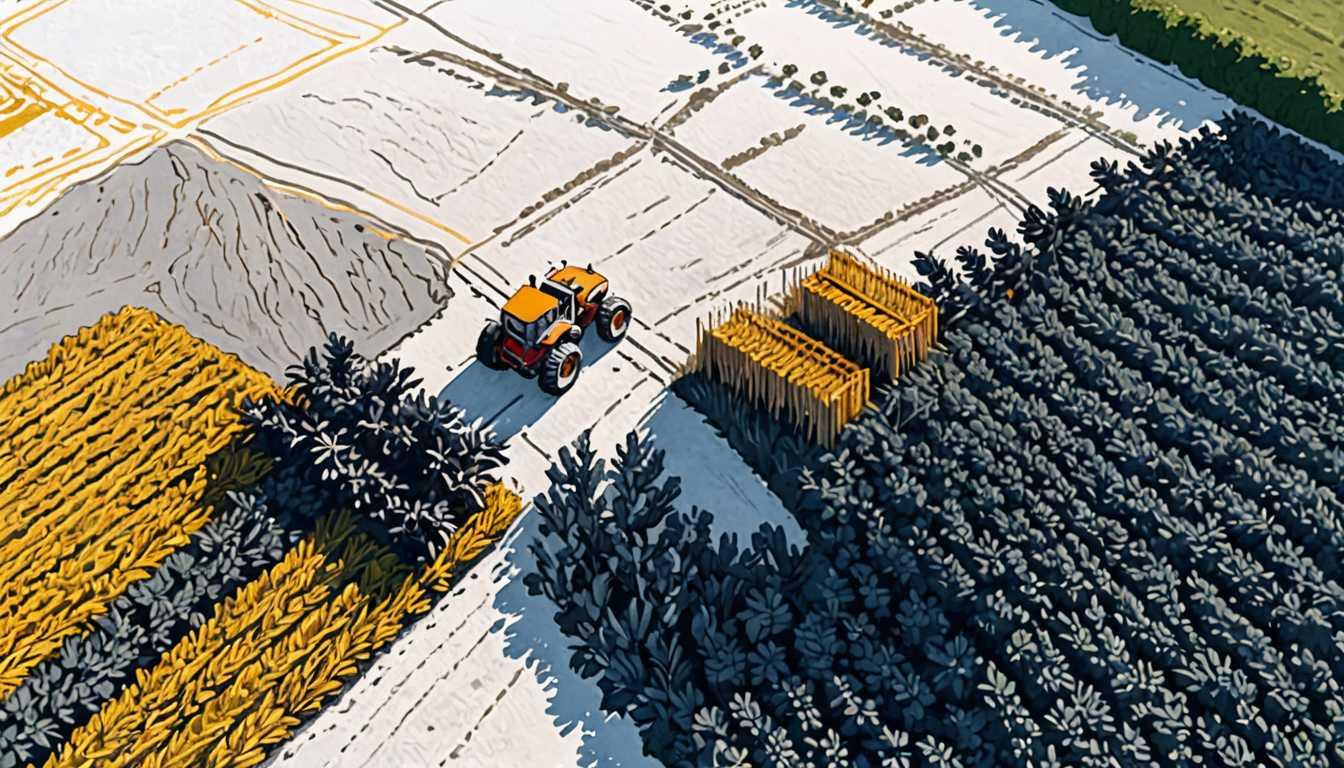Alfalfa: Unsung Hero of Agriculture
April 2024
JSTOR Daily
Introduction
Ever wondered about the unsung hero of the American food chain? Dive into Alfalfa: A Crop that Feeds Our Food on JSTOR Daily! This intriguing read reveals how alfalfa, a humble grass hay, plays a huge role in our diets by feeding the livestock that ends up on our plates. Despite its critical role and high water demands, especially during the Western megadrought, alfalfa remains a lesser-known powerhouse among crops. Explore its journey from ancient feed to modern-day agricultural staple!
READ FULL ARTICLEWhy It Matters
Discover how this topic shapes your world and future
The Root of Our Food - Why Alfalfa is a Big Deal
You might wonder why a simple plant like alfalfa matters so much in the grand scheme of things. Well, alfalfa is not just any plant; it's a powerhouse in the agricultural world. This crop is a major source of food for livestock, which in turn becomes the meat and dairy products you enjoy. Its extensive use in agriculture highlights crucial issues like water usage, sustainability, and food security on a global scale. The fact that alfalfa consumes a significant amount of water from the Colorado River, especially during times of drought, sparks a major debate about resource allocation. This scenario invites you to think about how even the smallest elements in our ecosystem, like a type of grass, play pivotal roles in bigger environmental and economic discussions. Understanding alfalfa's impact could change how you see the food on your plate and the world around you!
Speak like a Scholar
Cultivated (adj.)
Grown or raised under conditions that are actively managed by humans. Alfalfa is cultivated extensively due to its value as livestock feed.
Irrigation (n.)
The artificial application of water to soil, typically to assist in growing crops. In the West, irrigation is crucial for growing water-intensive crops like alfalfa.
Sustainability (n.)
The ability to maintain or improve certain processes or states indefinitely. Alfalfa's sustainability is questioned in light of ongoing drought conditions.
Megadrought (n.)
A prolonged, intense drought lasting two decades or longer that significantly impacts ecosystems and human activities.
Commodity Crop (n.)
A crop produced primarily for sale rather than for personal use by the grower, often on a large scale. Alfalfa, though less famous than corn or soybeans, is a significant commodity crop.
Nitrate (n.)
A natural compound made of nitrogen and oxygen that is commonly used in fertilizers but can be harmful to water sources in high amounts. Alfalfa helps absorb excess nitrate from the soil.
Independent Research Ideas
Impact of Irrigation Techniques on Alfalfa Yield
Investigate how different irrigation methods affect the growth and quality of alfalfa. This could involve comparing traditional flooding methods to more modern drip or sprinkler systems.
Alfalfa and Climate Change
Explore how changing climate conditions affect alfalfa production. You could focus on developing or identifying alfalfa strains that are more resistant to drought or extreme weather.
Historical Spread of Alfalfa and Cultural Significance
Trace the historical spread of alfalfa across continents and study its impact on various cultures, particularly focusing on its introduction via the Silk Road.
Economic Analysis of Alfalfa as a Commodity Crop
Conduct a study comparing the economic impact of alfalfa with other major crops like corn and soybeans, considering factors like market demand, production costs, and water usage.
Environmental Benefits of Alfalfa Beyond Livestock Feed
Examine the ecological roles of alfalfa, such as its ability to act as a bio-sponge for nitrates and its use in crop rotation to improve soil health. This could lead to discussions on sustainable farming practices.
Related Articles

Ancient Farming Hack Fights Climate Change
January 2023
Science Alert

From Menace to Delicacy: Saving Kelp
September 2019
Smithsonian Magazine

Seaweed Farming: Alaskan Fishermen's New Tide
June 2021
Smithsonian Magazine

Feeding the Future: Smart Farmland Shifts
April 2022
Harvard University

Red Nets: Farming's Secret Weapon
February 2024
UTokyo